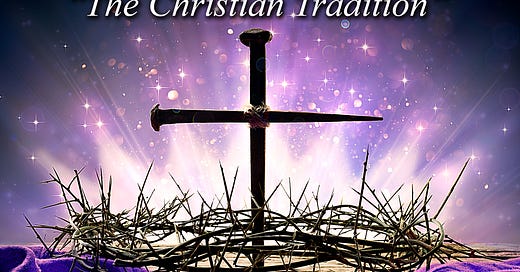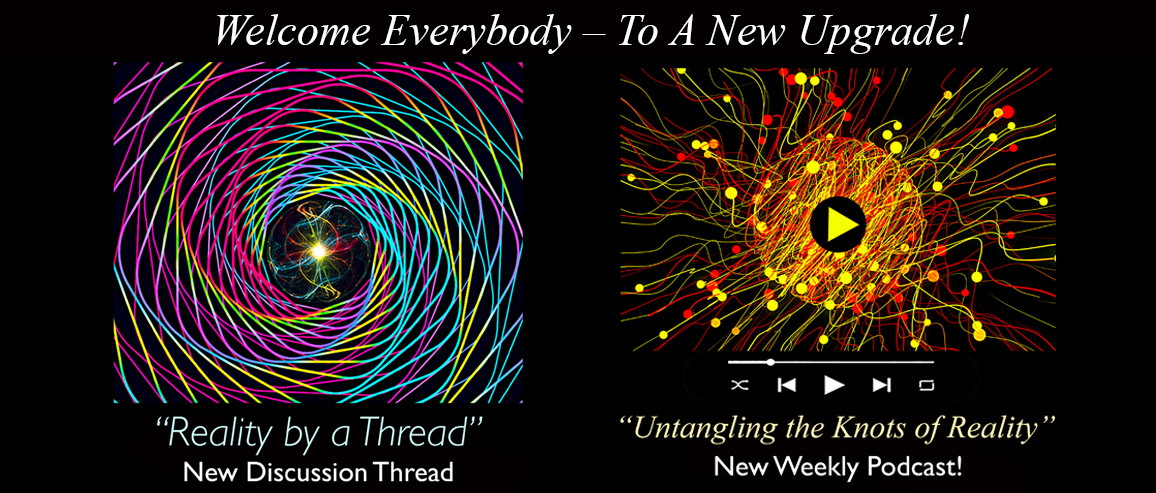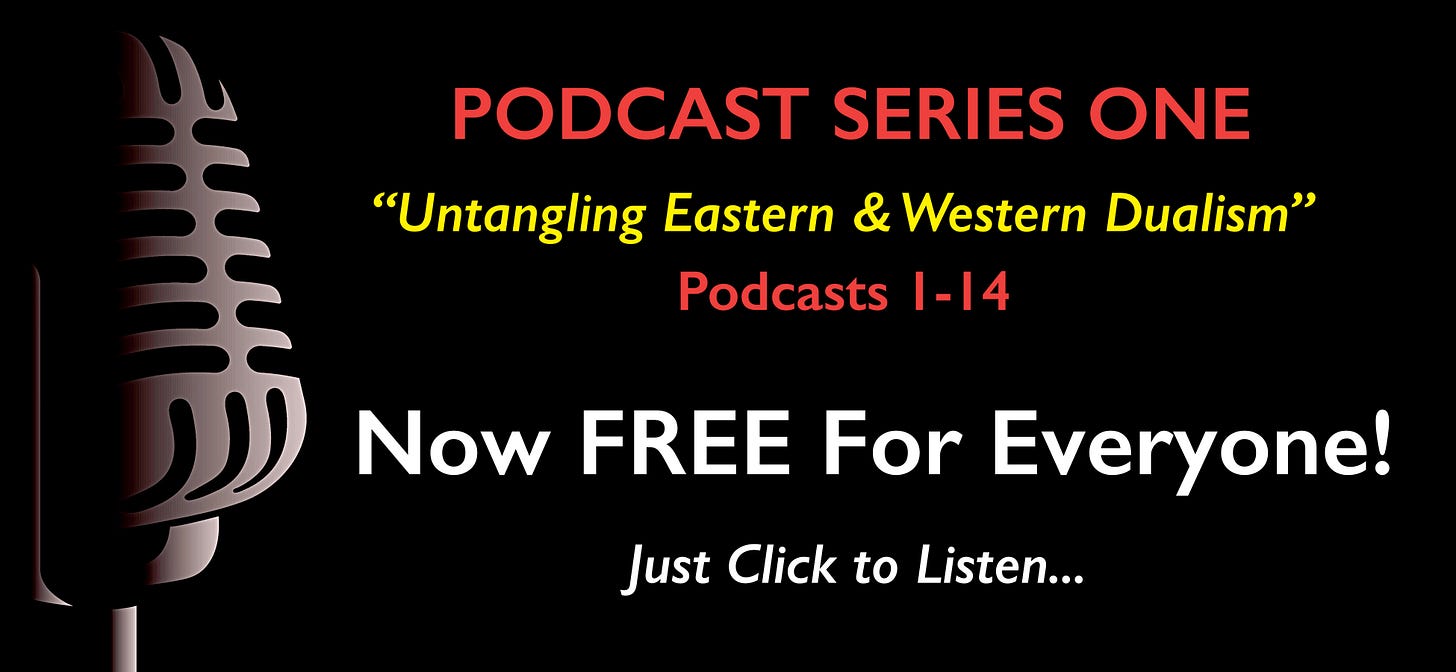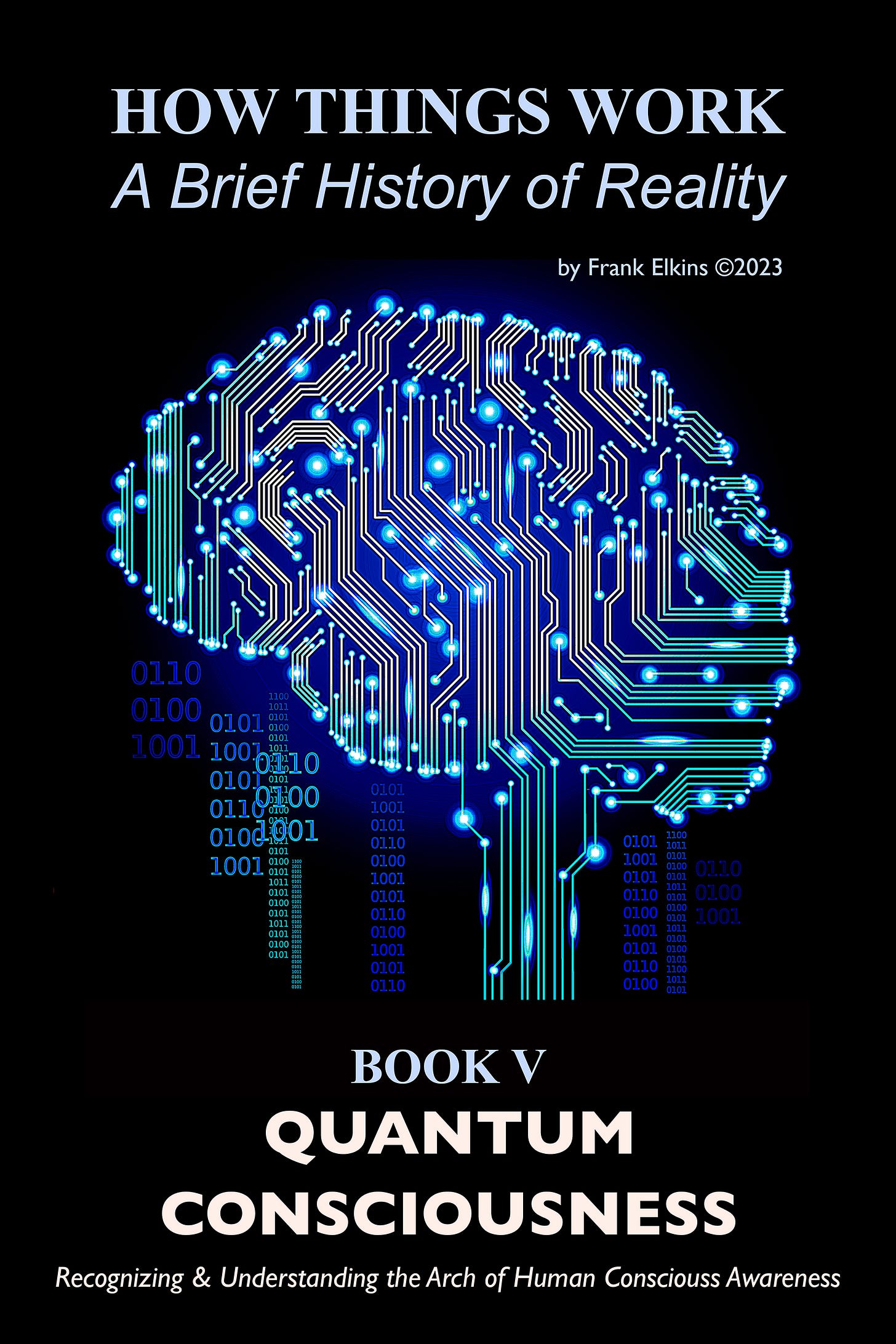How Things Work: A Brief History of Reality
BOOK II: The Power of Three (Science & Religion) – Consideration #98. "The Christian Tradition"
Be A Part of the Conversation!
Tuesday August 29, 2023
“The Christian does not think God will love us because we are good, but that God will make us good because He loves us.”
– C.S. Lewis
PREFACE
Welcome Everybody!
Christianity began as a small sect of Jews who believed that Jesus of Nazareth was the prophesied Messiah. After his crucifixion, they began to spread this “good news” among their fellow Jews. The “Jerusalem Church,” led by James, believed traditional Jewish orthodoxy should be maintained as part of the “new” Jewish “sect” of Christians. However, other disciples were responsible for spreading the “gospel” of Jesus to the Gentiles, or non-Jews. The “Gentile church,” led by Paul, did not believe it was necessary for “new” Christians to first convert to Judaism. For example, they believed that “Gentile Christians” should not be forced to follow Kosher eating restrictions.
“Most of what we now think of as Christianity is based on a “Pauline” interpretation of Christianity.”
This schism in the early church was the source of much conflict. However, the destruction of Jerusalem by the Romans in 70 CE also destroyed the early “Jerusalem Church” of Christians. Most of what we now think of as Christianity is based on a “Pauline” interpretation of Christianity. Paul and Peter led this “evangelistic” movement of Christianity into areas far beyond Jerusalem to the non-Jewish people of Greece, Asia Minor, Africa, Egypt, and eventually Rome itself.
“…Christian Martyrs were devoured by wild animals, burned alive, and stoned to death for the entertainment of the Roman crowds…”
Early Christians found themselves persecuted and hated by both traditional Jews, particularly Pharisees, and an even greater nemesis the Roman Empire. Under the reign of Diocletian alone an estimated 3,500 Christians were executed under the authority of Imperial Edicts. These “Christian Martyrs” were devoured by wild animals, burned alive, and stoned to death for the entertainment of the Roman crowds; as well as being crucified along the roads of the city. Both Peter and Paul were executed in Rome for their beliefs.
“Constantine eventually became the emperor of Rome and converted Rome from paganism to Christianity.”
Ironically, in 312 CE a young Roman general named Constantine had an epiphany that would eventually make Rome the new religion’s benefactor. After witnessing the vision of a “cross” in the sky the day before a major battle, Constantine fought the battle under the sign of the cross and converted to Christianity after winning the battle. Constantine eventually became the emperor of Rome and converted Rome from paganism to Christianity. The Roman Catholic Church was established, eventually leading to the largest organized religion in the world: Christianity.
Jesus was crucified by the Roman governor Pontius Pilate under the reign of the emperor Tiberius in 33 CE; in 380 CE the emperor Theodosius made Christianity the official religion of the Roman Empire.
CONSIDERATION #98 – The Christian Tradition
Embracing a somewhat complex and complicated theology expressing three manifestations, or facets, of the One God, Christianity expands on the Jewish concept of monotheism. In Christianity, One God constitutes three interdependent and interconnected manifestations of Divine Substance including the Father, the Son, and the Holy Spirit.
“Jesus manifests the ‘unity’ of God ‘within’ a single human being, the Messiah.”
Jesus the Christ, or Messiah, is the manifestation of the Son aspect of God in this Trilogy. However, being that God is also inherently One, Jesus is also infused with the Father and the Holy Spirit. Essentially, Jesus manifests the “unity” of God “within” a single human being, the Messiah. However, Jesus’ message does not reflect an imposition of more rules and laws, but an invitation to redemption and salvation. It is an offer to share his experience of unity with God, which he called “The Kingdom of Heaven.” Christianity literally changed the way people saw the world.
Christian concepts and world view permeate the entire foundation of Western theology, metaphysics, science, technology, philosophy, architecture, literature, music, art, theater, philanthropy, politics, economics, and ethics. Over 65% of Nobel Laureates from 1901-2000 were found to have self-identified as being Christian.
“Christianity would be used to justify both good and evil in the world.”
Like any major transformation in human consciousness, Christianity would be used to justify both good and evil in the world. Although pursuing Christian ideas and concepts provoked the Inquisition and Crusades, they also inspired the Enlightenment and the establishment of the United States of America; a new nation based on the Judeo-Christian values of individualism, representative government, and the law.
Although human beings continued to wage wars, Christian influence led to wars of consequence emphasizing moral considerations such a liberty, slavery, and despotism as opposed to violence simply for the acquisition of more land and wealth, as had previously been the case. Even if only a pretense, direct purely selfish motives such as conquest and wealth were no longer the publicly stated reasons for war. However, “Holy Wars” involving Christians, Jews, and Muslims would replace them, despite their shared common history and belief in the same God; the God of Abraham.
“The overall message of Christianity is that we can be better, and happier, human beings if we learn to love each other and treat each other with respect.”
Although Christianity has at times been used as a means for authoritarianism, and in the case of Adolf Hitler, revenge against the Jews, those with a purer heart tend to understand and promote the more powerful and benevolent potential in its teachings. The overall message of Christianity is that we can be better, and happier, human beings if we learn to love each other and treat each other with respect. This is accomplished by putting others, and God, before us.
“We are unique, and yet equal, under God.”
However, this should be done while maintaining your own inherent individualism as a child of God. We are unique, and yet equal, under God. The Judeo-Christian tradition is constituted through two key forms of expression. One, comes from the complex theology and metaphysics of the church. The other, flows through the simple narratives and stories composing the main book of the religion: The Bible.
Although the institution of the church uses the tools of theology and dogma to express their official interpretation of Christianity, the average individual Christian finds their inspiration and understanding of the world, and God’s intention for it, through the simple narratives and stories in the Bible.
In Christianity, everything begins with the Word, or “logos.”
POSTSCRIPT
The idea of a Holy Trinity can be a somewhat complicated theological concept to grasp. Essentially, it is what made Christianity impossible for the Jews to accept. In their view, it violates the basic “oneness” of God making the concept of monotheism meaningless. However, perceiving reality as a “trilogy” as opposed to a “duality” completely changes the nature of how we experience reality. Christianity is specifically designed to replace the experience of duality with one of unity; ironically this unity appears as a trilogy.
“H2O is one single substance; however, we often experience it as three different empirical states of existence.”
Christians, like Jews and Muslims, believe in one God. However, Christians understand the Trilogy as reflecting three key aspects of that “one God.” For example, we have a chemical compound or molecule such as H2O. H2O is one single substance; however, we often experience it in three different empirical states of existence. Below 320 Fahrenheit we experience this substance as “ice.” Between 330 and 2110 Fahrenheit we experience this substance as “water.” Over 2120 Fahrenheit we experience this substance as “steam.” Each, a uniquely different experience of H2O.
“…in each of these physical manifestations it remains one substance.”
Therefore, we can experience water, or H2O, as a solid, a liquid, or a gas; three different and unique states of matter. As a solid we experience uncomfortable “coldness.” As a liquid we experience refreshing “invigoration.” As a gas we experience “painful burning.” Each a distinct and separate empirical experience of the senses.
However, in each of these physical manifestations it remains one substance. Water is not three different things or substances, but it can be empirically experienced as three separate manifestations of that one substance. Making water one “thing” expressed in “three” ways. This is a very simple analogy for how Christians understand the “Holy Trinity” as “one Divine substance” expressed through “three aspects” of reality.
Next week we will begin our consideration of the third turning point in the Bible: The New Testament…
New Referral Rewards Program! Share the Conversation with friends and Earn Rewards for Subscription Referrals!!
(FREE Pre-Release PDF Download of my New Subtack Edition Book “SCIENCE” for Only One Referred Subscription to the Free “How Things Work” Weekly Newsletter!)
This Week on “The Thread”…
Expand the Conversation by Upgrading to “Reality by a Thread!”
•Untangling the Knots of Reality: Podcast #58 – “From Apple to Apple”
“The mind is its own place, and in itself Can make a heav'n of hell, a hell of heav'n.”
– John Milton, Paradise Lost
What does WYSIWYG mean and how did it revolutionize personal computers? How did Apple Computer help to make personal computers popular? How has our modern Digital Dualism led to the creation of Virtual Reality and Artificial Intelligence? These are a few of the knots we will attempt to untangle in this week’s podcast. That’s a lot of Digital Dualism for one podcast!
So, let’s get started…”
• REALITY BY A THREAD: BOOK VI PREVIEW (The Rational Being )
Short Story: “Perfection” – Part 2 (“Although the ‘humatons’ needed human beings as a mechanism for ‘purpose,’ it turns out that they didn’t need that many!”
This week the Perfect Machines make the world ‘more’ perfect; from their perspective…”)
•FREE PDF Download of Book IV: “The Cosmic Symphony – Overtones of String Theory” plus other Free Books, Discounts and Benefits. Also Gain Complete Access to all Previous Podcasts and Threads!
UPGRADE NOW!
Available Now!
Excerpt from PODCAST #12: "Untangling Happiness and Virtues"
If you find yourself growing tired of the same old meaningless fluff, this may be the Podcast you’ve been looking for!
Podcast #1 – A Lot of Explaining
Podcast #2 – Untangling Mathematics & Metaphors
Podcast #3 – Untangling the Garden of Eden
Podcast #4 – Untangling The Physical World
Podcast #5 – Untangling the Rational Mind
Podcast #6 – Untangling Eastern & Western Dualism
Podcast #7 – Untangling Zen & the Shaolin Temple
Podcast #8 – Untangling the Mystery of Taoism
Podcast #9 – Untangling The Noble Eightfold Path
Podcast #10 – Untangling Plato's Realm of Forms
Podcast #11 – Untangling Aristotle's Metaphysics
Podcast #12 – Untangling Happiness & Virtues
Podcast #13 – Untangling Self-Evident Truths
Podcast #14 – Untangling The Cosmic Symphony
“Untangling the Knots of Reality – Be A Part of the Conversation!”
Coming This November! Book V in the “How Things Work” Series…
“Quantum level thinking embraces the world of probability over physicality. It refocuses Awareness and Consciousness beyond the empirical world of Physical Reality to a totally abstract world of Quantum Possibility…”
– Frank Elkins
“Quantum Consciousness – Recognizing and Understanding the Arch of Human Awareness”







